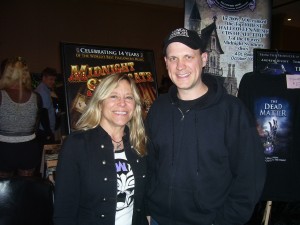Technology since the 90s has driven and ultimately reigned in the unauthorized use of copyrighted material, especially music. From the widespread use of unlicensed music samples in the early days of hip hop to the rise of clearinghouses for the licensing of samples currently, musical artists have become more willing to pay for others’ works used in their creations. Many musicians formerly espoused a “live and let live” philosophy when it came to enforcing their ownership rights in their compositions and recordings. However, when digital technology allowed individuals to upload, download and share their music collections and obtain music without paying for it through the internet, the record companies and artists started to feel the pinch. With reportedly millions of dollars in lost sales through organized sharing sites such as Napster and Grokster, some high profile artists launched a war against unauthorized distribution and use of their music, Metallica in particular. The Napster lawsuits led to agreements that benefited both the artists and satisfied the public’s desire for convenient access to music. Now Napster is a pay site and ITunes distributes more music than any record company on earth.
Similarly, musical artists grew weary of other artists using parts of their recordings without permission in their new recordings. Arguments that the excerpts taken were too small to be actionable (the de minimis claim) were common in copyright infringement cases, which required “substantial similarity” between the original composition and the new song. This standard was used in sampling cases until 2005, when the Bridgeport Music, Inc. v. Dimension Films, Inc. case was decided. The Bridgeport case established a bright line test for copyright infringement by music sampling, stating that no matter how minimal the amount taken, physical copying of any part of a sound recording constitutes infringement. The only issue is whether the actual sound recording has been used without authorization. The 6th District Circuit Court of Appeals based their analysis on section 114(a) of Title 17 of the U.S. Code, the 1976 Copyright Act, which sets out the exclusive rights of copyright in sound recordings, including reproducing the work in copies or phonorecords, and the right to prepare derivative works based upon the copyrighted work. In short, only the copyright owner of a song may sample any part of that song. IN Bridgeport, the defendants had used a two second sample of a guitar solo from a George Clinton and the Funkadelics song in a tune that was recorded and then used in a movie soundtrack. The lower court went into great detail about the distinctiveness of the riff taken, how it was looped and used in five parts of a new song. The appeals court threw that analysis aside in stating that once a copyrighted sound recording has been digitally sampled, there is infringement and no de minimis analysis should be undertaken. The test is still based on substantial similarity for compositions (recall the “My Sweet Lord”/”He’s So Fine case in the seventies), but the “physical taking” involved in sampling sound recordings amounts to copyright infringement no matter how small the part taken or how the parts may have been changed.
As mentioned, this case established a new rule that sampling is never accidental, and that if you want to sample, you had better get a license. Most music publishers and record companies have instituted licensing policies to avoid litigation over sampling. The court hinted at some possible “free” sampling opportunities with “a large body of pre-1972 sound recordings that are not subject to federal copyright protection.” The court acknowledges that some artists and companies will still choose to sample and take their chances. Such is the case claimed in an action filed recently in U.S. District Court for the Northern District of Ohio in Cleveland entitled Entity Production, Inc. v. Psychopathic Records, Inc., which involves the horror/goth band Midnight Syndicate suing the hip hop group Insane Clown Posse for copyright infringement by sampling. The case has not gone to trial yet, and is probably going to be heard in early 2012, but the complaint sets out a compelling argument of blatant unauthorized physical sampling. In an artfully crafted complaint, attorneys for Entity Production, Inc., which along with its music publishing division, Linfaldia Records, owns all rights to the Midnight Syndicate compositions and recordings, simply and powerfully detail what was done and who did it. Civil Rule 8 requires only that complaints contain a “short and plain statement” showing entitlement to relief, and Entity’s statements recite the copyright registration certificate numbers for the seven compositions and recordings and the fact that they were registered before the infringement. Ownership of the compositions and recordings is specifically claimed and identified through assignments by the musicians to their music publishing and record companies. The timeline goes from the discovery of the infringement in 2009 through the cease and desist letter sent to Psychopathic Records by Entity’s attorneys, which was ignored, through a new discovery of unauthorized use by sampling in 2011 on a new Insane Clown Posse recording. This no doubt led to the claim that the infringement was “malicious and purposeful”, especially since the defendants were warned to make a licensing agreement in the 2009 letter, and never did for any of the recordings taken, and even took a new sample in 2011 after the warning letter. The defendants are accused of taking “substantial excerpts” of seven Midnight Syndicate recordings, which were used in their original state with vocal overdubs and looped to repeat throughout the new recordings. The excerpts are easily recognizable and are not altered in any way, but are used as the entire musical beds for the new recordings. Insane Clown Posse even claimed copyright in the new recordings containing Midnight Syndicate’s recordings, with the legend “All Rights Reserved”! Direct and vicarious liability for infringement is placed squarely on the principals of Insane Clown Posse, Joseph Utsler aka Shaggy 2 Dope, and Joseph Bruce, aka Violent J, who run the entire ten million dollar a year operation consisting of sound recordings of several artists, merchandise of all types, and even professional wrestling. The complaint also lists the I.C.P. trademark for all the merchandise and recordings as evidence that the principals of I.C.P. personally sampled or directed the sampling of Midnight Syndicate recordings, and has direct financial interest in the exploitation of the infringing works as shareholders of Psychopathic Records.
Entity lists the sales figures from SoundScan for Insane Clown Posse and notes that the bands within the company all perform and sell merchandise in this district, simultaneously giving a reason for the venue being appropriate in Cleveland and setting up a claim for the maximum amount under the Copyright Act for statutory damages, or in the alternative, the opportunity to prove damages at trial. The statutory damages prayed for are $150,000 for each separate infringement of the seven compositions and the seven sound recordings, totaling $2.1 million. IF the case goes to trial, the damages could conceivable be a lot more due to the harm to the market for Midnight Syndicate songs and the large amounts of revenue generated by the sale of I.C.P. recordings and merchandise, which could well be partially driven by the use of the infringing samples in the songs. The cease and desist letter also asks Psychopathic Records for a list of any licenses issued for the use of the recordings incorporating the infringing excerpts in motion pictures, television programs, commercials, and for any public performance revenues from the tunes containing the infringing samples.
The complaint paints such a strong picture of infringement it almost seems iron clad, and those who have compared the Midnight Syndicate songs with the Insane Clown Posse and other Psychopathic Records songs including the sampled excerpts have no trouble recognizing them in the infringing works. The evidence of infringement is so clearly mapped out in the complaint that I predict that the case will be decided against Psychopathic Records on the pleadings alone, or that there will be a settlement before the case goes to trial. If the case does go to trial, I expect a citation to the bright line test in Bridgeport case will be one of the main references in support of Entity Production’s position The amount and substantiality of the samples and the notice of infringement letter sent to the defendants will foreclose the defendant’s possible claim of fair use of the samples.

